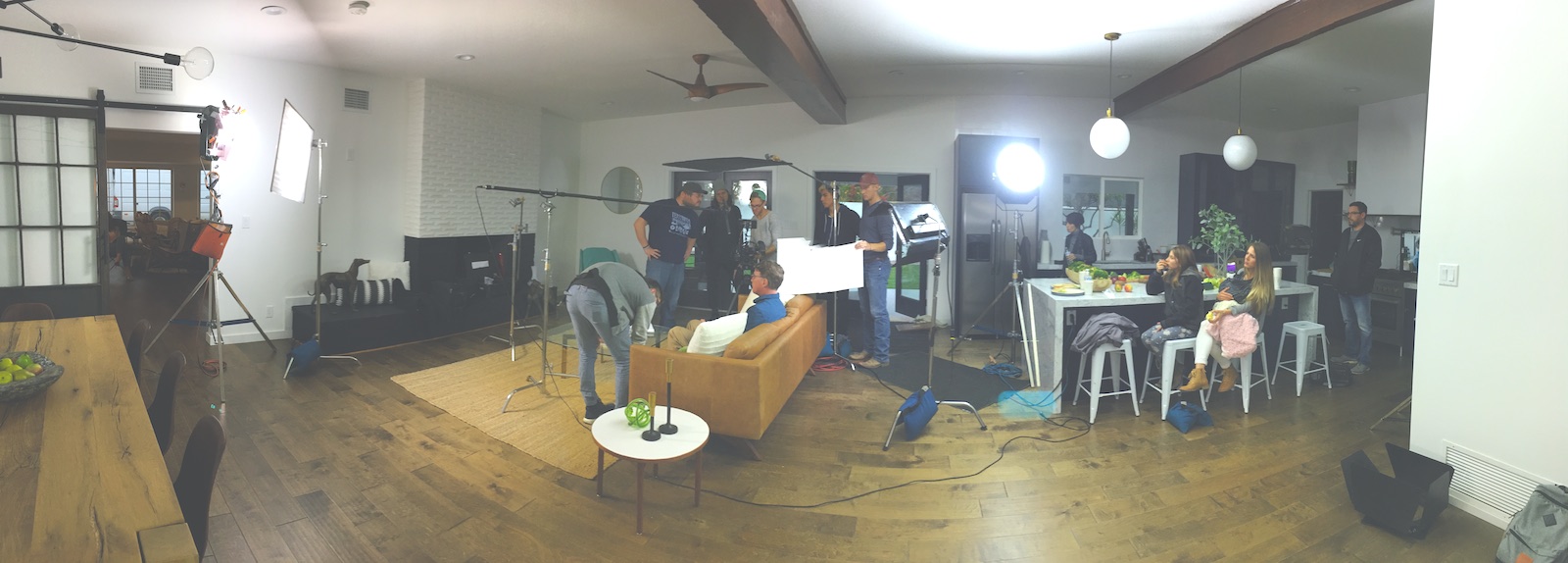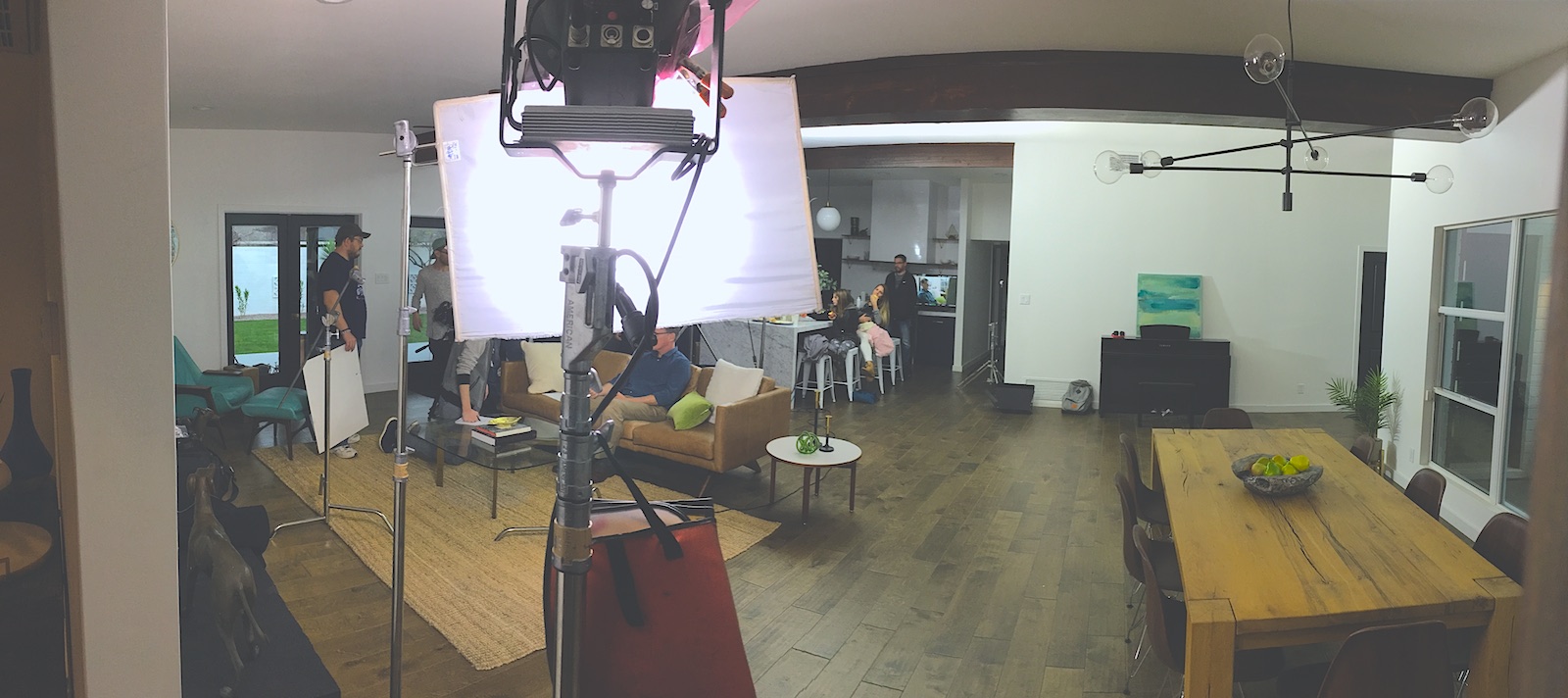Why Script Writing is Essential to Video Production
Strategizing before producing a new company video not only expedites the process, but provides clarity for everyone involved. In this article, I discuss the important aspects of a production script and why a quality video strategy is important for any business near Memphis, Tennessee . Video DirectionContact UsWhat is Script Writing?
A production script is a word document that outlines and describes your video project. In other words, it helps establish the purpose and process of your upcoming video. For a more official definition, Wikipedia describes script writing as a document that outlines every aural, visual, behavioral, and lingual element required to tell a story. Planning and preparing for a production project is a lot more work than many realize. This is why an effective script that outlines your project will inevitably help you produce a quality video. In order to understand this process a little further, I’ve broken script writing down into two elements
The Story Structure.
The structure pertains to the actual story itself. No matter what channel you’re using, if you want to promote an effective video, it needs to incorporate a storyline. Some questions you can ask are: What happens in the beginning and what is the plot or purpose? How is the plot relevant to brand objectives or consumer needs? What type of conflict do you want to portray and how do you plan on overcoming it?
Organizing actors, happenings, expressions and outcomes also play a large part in the clarity of your production. Similar to a box office hit, short videos need to make sense. Also known as a “screenwriting,” this process forces you to organize your media presentation in story form so that it causes an emotional response or reaction by the audience. Once you solidify the storyline, you”ll want to expand on the action within.
The Visual Action.
A production’s visual action overview is one of the most overlooked aspects of script writing. Although most video projects incorporate a script, some wait to determine the video’s elements until the day of the shoot. There is no right or wrong way, but if you’re just starting off, then I’d recommend mapping out every scene beforehand. This is where you literally narrate movement, attitudes, actions, and dialogues.
You’ll want to describe interactions in detail to reassure your message is getting across. Furthermore, this is where you go into detail about, camera angles, lighting, scene moods, locations, and other varying factors. Meshing all of these variables together forms an effective script writing process. As you can tell, this is completely different from any other form of content – and far more complex. Instead of telling a story like a blog, you’re now showing your audience the story by using an effective script. Expanding on the visual shots beforehand will definitely give you an advantage.

What Goes into the Script Writing Process?
- Attention Headline. First and foremost, you’re going to want to focus on the video’s opening statement. When writing your script, you must understand that the initial communication is what hooks your audience. A failure to execute during this portion of the writing process can create boredom or disinterest overall. In most cases, the best way to start off your script is with the problem you’ve set out to solve. This is the most important element of production as you should want viewers to continue watching the video.
- Characterization. Second, you’re going to want to solidify actor’s lines and their corresponding actions. The sooner you’re able to solidify this, the better. In this step, you’ll want to thoroughly define the look and feel of each character. Not only does this come in handy when executing casting calls, but it allows the characters to practice their lines and learn the purpose and personality of their respected role.
- Scene Messaging. Similar to any form of content, it’s important that you relay your concept, or the value your story brings. Don’t just piece the production together to reach 30 seconds or 1 minute – as every form of communication matters. This is especially true when developing a video with humor. You must consider that way the joke will be perceived. Take time to carefully craft out each line so that it resonates well and doesn’t offend anyone involved.
- Scene Transitions. Once you’ve outlined the dialogue, emotion, and viewpoint – it’s time to start identifying the way you’d like to transition each scene. Most movies, even short ads, have a number of transitions. Planning these out beforehand can save a lot of time and frustration. A simple misstep in this aspect can throw your entire story off. Poor transitions can create confusion or misinterpretation of what just happened.
- Solidified Viewpoints. Lastly, you’re going to want to highlight the details of every scene. Experienced production writers, like myself, generally have an improved understanding of this. In order to incorporate the mood of every scene, I like to map out the visual representation of every scene through illustrations or box drawings. This enhances the way everyone understands camera angles, lighting, emotional reactions, surroundings, props, and additional features. Detailing the scene with a written description is OK – but imagery tends to resonate better.
Finalizing Your Written Script.
After you’ve completed the general production script, take additional time to look over the dialogues to see if anything else can be expanded on. I even recommend going as far as referencing voiceovers, natural noises, the cuing of music, and video animation. The more cohesive you are with your script, the more efficient the entire process will be.
Once you finalize the script, it’s time to start sharing it with and explaining it to your team. Depending on the extent of your production capability, this can vary. Let’s pretend, you hired me to design the video project and it’s now my job to relay the next steps. First I’m going to want to review everything with stakeholders and those vested in the project. Once I’ve received a green light, I’m going to email copies to my technical team to begin equipment preparation. It’s always best to confirm capabilities before anyone else is involved. If you don’t possess a production team, this is where you begin to garner quotes from equipment contractors and establish your budget.
From here, we can begin to execute casting calls and educate the selected talent once they’ve been hired. Leading up to the shoot, it’s imperative to review all production aspects with everyone involved. I would even suggest choreographing a morning meeting the day of the shoot in order to reiterate goals and workflow. This ensures your script goes as planned, all questions are answered, and general mistakes are eliminated.

The Benefits of Script Writing for Video Production.
As aforementioned, your production script is essentially the blueprint of your video. Planning ahead reassures your ability to get your vision across in an effective manner. Aside from a thorough strategy, a professional script writer also makes sure the cast feels and acts out the script instead of just reading their lines. They have a keen ability to communicate with the cast and understand how certain viewpoints and angles improve audience perception.
Having solid leadership that ensures cohesion will eliminate excuses or error on production day. A strong process also allows directors to be more direct and critical throughout filming. The main benefit of a good script writer, is that they’re able to guide you through the process while paying attention to the fine details that can inevitably distract viewers from the video’s purpose.
Writing Out a Video Script is Bigger Than Producing Something “Cool”.
Here are some of the main advantages of hiring a creative director to write your production script.
- Strategic Writing. Hopefully this blog has helped you understand the amount of strategic detail that goes into video production. When media is speaking to a specific audience or relaying a certain brand, this is essential. Not only is a story needed, but it needs to tie into the brand or audience’s values. Most script writers have advertising and marketing experience, so this comes natural to them and they’re able to communicate in a number of ways effectively. Let’s remember that a script isn’t written to be read, it’s written to be performed.
- Less Time Filming. As most projects, improved planning creates a better process. This is even more true in the production realm. Preparing contingencies for weather help avoid setbacks while a thorough projection establishes cohesion. A script writer understands all of the things that can go wrong as well as every scenario that needs to be planned for. Quality production creates a seamless process with less stress and more action throughout filming day. This gives the business owner more time to focus on other aspects of the company that require their attention.
- Creative Outcome. Experienced copywriters tend to have a knack for telling good stories. After all, this is their profession. Hiring someone to write your script not only saves you time, but creates a peace of mind that everything is under control. An understanding of the process increases one’s ability to be more creative and produce something that’ll engage, or catch the eye of ideal consumers.
- Less Money Spent. When filming a video, you not only have to consider the time it takes, but the amount of money you pay everyone involved. Investing a little more on the front end to establish an outline projection sets the parameters of the project and ensures you don’t go over them.
- More Money Earned. This is border line common sense. A professional production script will allow you to develop and promote a higher quality video with a more substantial message. The better your storyline resonates, the more trust you generate towards your brand. Entertaining users creates a sense of intrigue that leads to store visits and potential loyalty.
- Production Satisfaction. Not only will a written script improve the video quality, but it creates a positive experience for everyone involved. A poorly planned video project can create a lot of stress or frustration quickly. Taking the time to ensure everyone is on the same page and everything is mapped out relays a sense of professionalism that’s appreciated. Not only will participants look forward to working with you again, but they’ll respect the amount of preparation you placed in the project so they could experience a peace of mind.
Concluding the Script Writing Process.
Content and copywriters have a passion for what they do. Not only do they understand how to position brands so their audience is reached, but they understand all of the work that goes into an effective presentation. If you’re on the fence with hiring a production script writer then consider the ramifications of avoiding one. Creating a video is an expensive project, but promoting low quality media can be brand damaging. Either way, good luck with your process and feel free to reach out with any questions or concerns.
